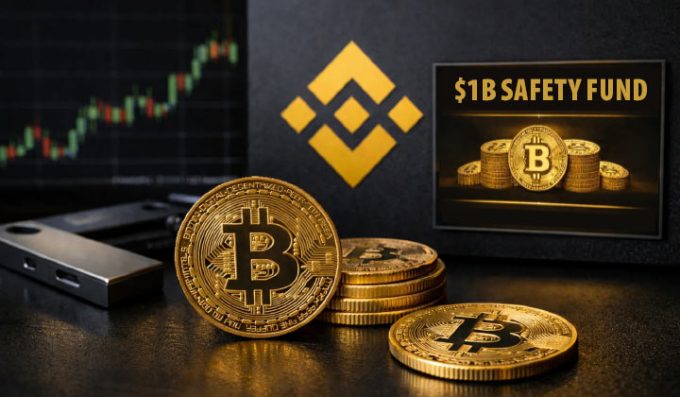Hong Kong’s government has recently proposed a new policy allowing retail investors to trade cryptocurrencies and crypto exchange-traded funds. This is a significant move as it could help Hong Kong regain its fintech hub status. Previously, Hong Kong proposed limiting crypto trade to professional investors, which received heavy criticism for stifling innovation. As a result, many start-ups moved to other markets, such as Singapore and Dubai.
However, the latest announcement could put Hong Kong’s rules on par with Singapore’s. Andy Mehan, chief compliance officer for APAC at U.S. crypto exchange Gemini, stated that “industry participants want to see consistency in the global regulatory regime. Otherwise, there will be opportunities for bad actors to exploit loopholes in jurisdictions with less rigid laws.”
Additionally, Hong Kong’s government will review property rights for tokenised assets and explore legalising smart contracts. These moves will likely pave the way for real estate security token offerings (STOs). STOs are blockchain-based tokens representing ownership interests or entitle holders to income or dividends from real assets.In a keynote address broadcast to the Hong Kong Fintech Week conference, Financial Secretary Paul Chan stated, “We want to make our policy stance clear to the global market, to demonstrate our determination to explore fintech with the global virtual asset community.” This move will likely set Hong Kong apart from mainland China, which has imposed a blanket ban on cryptocurrency trade.
“This is a positive move as it sends out a strong message that Hong Kong is taking a different approach in regulating its capital market,” said Adrian Wang, chief executive of crypto brokerage Metalpha.
While Singapore allows retail investors to trade in cryptocurrencies, its central bank has discouraged the public from speculative trading in cryptocurrencies and brought restrictions on advertising cryptocurrency services in public places. It is also proposing new measures.
Cryptocurrency has gained increasing attention in the financial industry in recent years, with its potential to revolutionize the way we transact and invest. However, with its rise has come the need for regulation to protect investors and maintain the financial system’s integrity. In Hong Kong, the Securities and Futures Commission (SFC) has recently proposed new regulations requiring all Virtual Asset Service Providers (VASPs) to obtain a license to offer cryptocurrency retail trading.
But what are the requirements for crypto platforms to apply for a license in Hong Kong? Let’s take a closer look.
Assessing clients’ risk profile
One of the SFC’s proposed measures is assessing clients’ risk profiles. This includes gathering information on clients’ financial situations, investment experience, and risk tolerance. This information will be used to set limits to ensure their exposure is reasonable and in line with their risk profile.
Due diligence on tokens
Operators of crypto platforms must also do their due diligence on tokens and monitor them. This involves assessing the regulatory status of the asset in each jurisdiction in which the operator provides trading services. This is important to ensure that operators are not unknowingly facilitating illegal activities such as money laundering or terrorist financing.
Smart contract audits
Another critical requirement is to perform smart contract audits on tokens to check for security flaws. Smart contracts are self-executing contracts that are encoded on a blockchain. Therefore, ensuring that these contracts are secure and free from vulnerabilities that bad actors could exploit is essential.
Liquidity checks
Operators of crypto platforms must also check their liquidity to ensure they have sufficient funds to meet customer demand. This is important to prevent the platform from becoming insolvent and to protect investors’ funds.
In summary, Hong Kong’s new cryptocurrency regulations require VASPs to obtain a license from the SFC to offer retail trading of cryptocurrency. In addition, operators must assess clients’ risk profiles, do due diligence on tokens, perform smart contract audits, and check their liquidity. These measures aim to protect investors and maintain the integrity of the financial system while still allowing for innovation and growth in the crypto industry.
Advantages of Obtaining a License for a Cryptocurrency Platform in Hong Kong
Obtaining a license may seem like an additional hassle for crypto platform operators, but it actually comes with several benefits. First and foremost, it allows crypto platforms to operate legally and offer their services to retail investors. This can significantly expand their user base and increase revenue opportunities.
Furthermore, obtaining a license ensures the platform complies with the new cryptocurrency regulations and the statutory Anti-Money Laundering and Counter-Terrorist Financing Ordinance (AMLO). Compliance with these regulations helps build customer trust and can prevent fines and imprisonment for non-compliance. The licensing process also involves the following:
- Assessments of clients’ risk profiles.
- Setting reasonable exposure limits.
- Due diligence on tokens and their monitoring.
This can help identify and mitigate risks associated with trading cryptocurrency and protect investors.
Additionally, licensed platforms are required to assess the regulatory status of assets in each jurisdiction where trading services are provided. This helps prevent potential legal and regulatory issues that arise from offering services in jurisdictions with less rigid laws. Finally, licensed platforms must also perform token smart contract audits to identify and prevent security flaws. This can help protect the platform and its users from potential cyber-attacks and hacks.
In summary, obtaining a license for a crypto platform in Hong Kong has several benefits, including legal compliance, increased user base, and risk mitigation. It is essential for any platform looking to offer retail trading of cryptocurrency in Hong Kong and comply with the new regulations.
In conclusion, this latest announcement by Hong Kong’s government could pave the way for the city to regain its fintech hub status. With the proposed policy to allow retail investors to trade in cryptocurrencies, the review of property rights for tokenised assets, and the exploration of legalising smart contracts, Hong Kong is making its policy stance clear to the global market.
You need to login in order to Like














